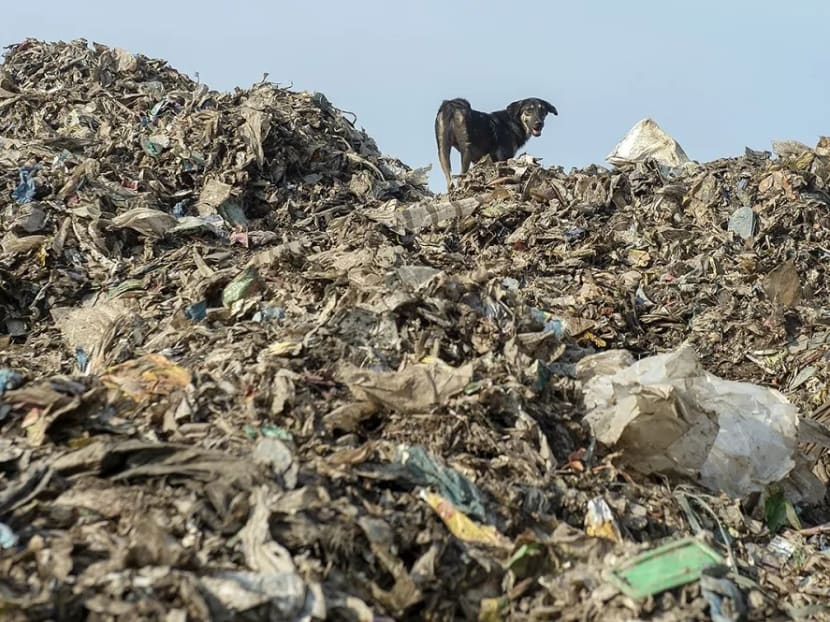‘Tapau’ culture major contributor to country’s plastic waste problems: WWF M'sia report
KUALA LUMPUR — A recent report by the World Wide Fund for Nature (WWF) Malaysia has pinpointed the “bungkus” or “tapau” (takeaway) culture as one of the major contributors to plastic waste in the country.
KUALA LUMPUR — A recent report by the World Wide Fund for Nature (WWF) Malaysia has pinpointed the “bungkus” or “tapau” (takeaway) culture as one of the major contributors to plastic waste in the country.
The “Study on EPR (Extended Producer Responsibility) Scheme Assessment for Packaging Waste”, which was released by WWF-Malaysia on Monday (Sept 21), indicated that various forms of single-use plasticware — from plastic bags to cutlery — that are favoured as containers for takeaway food are the reason why Malaysians use, and subsequently, discard so much plastic.
“With the ease and convenience of buying readily cooked food in Malaysia from hawker stalls and restaurants, many households commonly opt for takeaway food. This culture of purchasing takeaway food results in a high degree of plastic packaging to store and transport the food.
“For example, a simple meal of takeaway noodles with soup would comprise up to six different single-use plastic items i.e. at least three layers of packaging — one plastic packaging for the noodles, one for the soup, and another to hold the two separate packagings that contain the noodles and soup, wooden chopsticks packed in plastic, a plastic spoon and potentially a separate small bag of a chili or sambal.
“This trend has been exacerbated with the introduction of motorbike-based delivery services, that deliver takeaway food not only from the typical fast-food outlets but also from small individual outlets and even hawker stalls,” said the report.
According to the report, Malaysians had on average produced around 34kg of post-consumer plastic waste in 2016, with approximately 22kg per capita consisting of plastic packaging waste.
The report’s 2016 post-consumer plastic waste per capita estimation was based on population data collected by the Department of Statistics as well as a survey on Solid Waste Composition, Characteristics & Existing Practices of Solid Waste in Malaysia commissioned by the Department of National Solid Waste Management in 2013.
The estimation is in tandem with another study conducted by WWF in 2019, that showed Malaysia has the highest annual per capita plastic use at 16.78kg per person compared to China, Indonesia, the Philippines, Thailand and Vietnam.
PLASTIC PACKAGING PREFERRED DUE TO MALAYSIA’S CLIMATE
The report also stated that plastic packaging for food in Malaysia is preferable as it is seen as a necessity to prevent edible items from going bad or being eaten by pests, a common problem due to the country’s hot and humid climate.
“Day-to-day grocery products such as flour, sugar or pasta are often packaged in paperboard in colder climates. However, in tropical climates, these products typically require a different or additional form of packing with plastic. In addition, instant beverages, instant noodles and other snacks are often sold in individual portions which are packaged in multi-layer sachets.
“While the market share of these sachets is much higher in countries with a lower GDP per capita (e.g. Indonesia and the Philippines), these individually packaged portions have become an important part of the food packaging in Malaysia.
“Lastly, expensive and imported products such as fruits or chocolate are often individually packed with additional plastic, while vegetables, leafy greens and meats are individually packaged to prevent them from bunching with other produce. Meat produce, including seafood, are commonly wrapped in multiple layers of plastic, on top of the PP packaging container, to prevent ‘leakage’,” said the report.
MAKE EPR MANDATORY TO SOLVE PLASTIC WASTE MANAGEMENT ISSUES
In the report, it was stated that Malaysia has the best recycling infrastructure in Asean.
Yet, instead of managing and recycling waste products in the country, the majority of recyclers and aggregators import recyclables to process instead.
The report added that this factor, as well as the effectiveness of respective local collection and disposal systems, could lead to materials with recycling potential ending up in landfills and dumpsites or littering the environment, eventually making their way into the ocean.
In Malaysia, the informal sector, which comprises a wide variety of participants including individual material pickers, mobile collectors and tailgate sorting, are the backbone of the recycling industry, said the report.
As a means to creating an effective and financially viable waste management system, the report suggested that an EPR scheme be made mandatory and customised to fit the nation’s waste management needs and challenges.
This includes the participation of the informal sector along with other civil societies across the waste management value chain to increase the scheme’s effectiveness.
“There is nothing unusual about the EPR scheme. Governments of several low and middle-income countries have started to introduce or draft regulations on EPR. Companies and business associations have also launched voluntary commitments and initiatives based on EPR schemes to accelerate the transition to sustainable waste management and circular economy.
“However, an effective EPR scheme must be designed and tailored to the existing waste management system and flow of recyclable materials,” said Dr Adrian Choo, Lead for the Sustainable Markets Programme in WWF Malaysia, in a press release released in conjunction with the report.
A non-profit Producer Responsibility Organisation should also be put in charge along with control and monitoring by the government for the scheme to work, stated the report.
“Ultimately, we need an EPR legal framework that outlines clear objectives, responsibilities, enforcement mechanisms, and a timeline for implementation. EPR complements other environmental regulations such as shifting to a circular economy, promoting eco-design, and transitioning to a more resource-efficient economy,” said Dr Choo. MALAY MAIL







